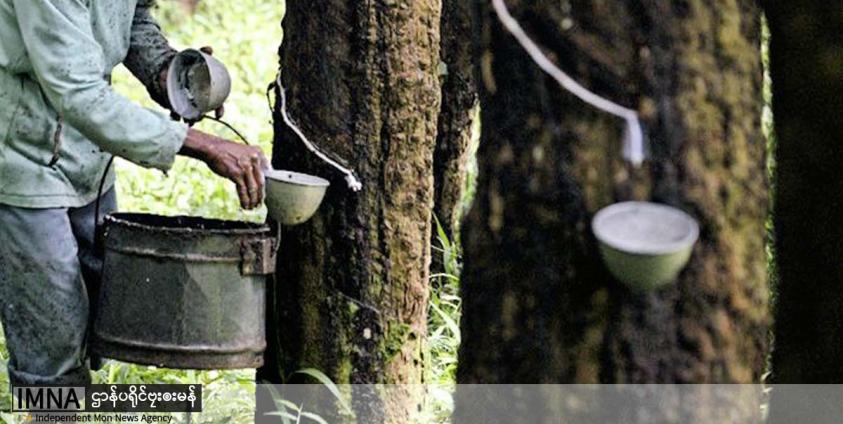In northern Ye Township, Mon State, rubber plantation workers and owners are caught between the demands of both the military junta and local revolutionary forces, each requiring specific permits to operate.
According to local sources, plantation workers and owners in areas such as Mawkanin, Thaung Pyin, Kawdut, and Lamaing are required to obtain access permits from the junta's Battalion 106 in Mawkanin in order to work on their plantations.
At the same time, revolutionary forces in the region have begun issuing their own security permits, which are mandatory for migrant workers employed on the plantations.
A local resident said, “the military junta-issued plantation access card is essential, but revolutionary forces also issue their own permits. Workers who hold both permits may face problems, as revolutionary forces might object to the junta-issued card, and vice versa. This creates anxiety for workers.”
In areas controlled by revolutionary forces, workers must carry permits issued by these forces and are instructed not to obtain permits from the junta.
To secure a junta-issued access permit, plantation owners must pay MMK 5,000 per plantation. In contrast, the revolutionary forces charge around MMK 30,000 per migrant worker for their permits.
“For permits issued by the revolutionary forces, plantation owners don’t have to pay. However, if they hire migrant workers, those workers must have permits. If a worker gets into trouble, the owner is held responsible. The permits must be shown on request but should be hidden from junta troops to avoid arrest.” said a plantation owner.
The junta has reportedly warned that any plantation workers or owners without its permit will be labeled as PDFs (People’s Defense Forces) and face arrest. This has further complicated the situation for both workers and plantation owners.
The ongoing military tensions between the junta and revolutionary forces in northern Ye have led to increased arrests and inspections, severely disrupting rubber and plantation businesses.
While rubber prices remain high in Mon State’s markets, regional instability continues to undermine the livelihoods of rubber farmers, presenting significant challenges.








